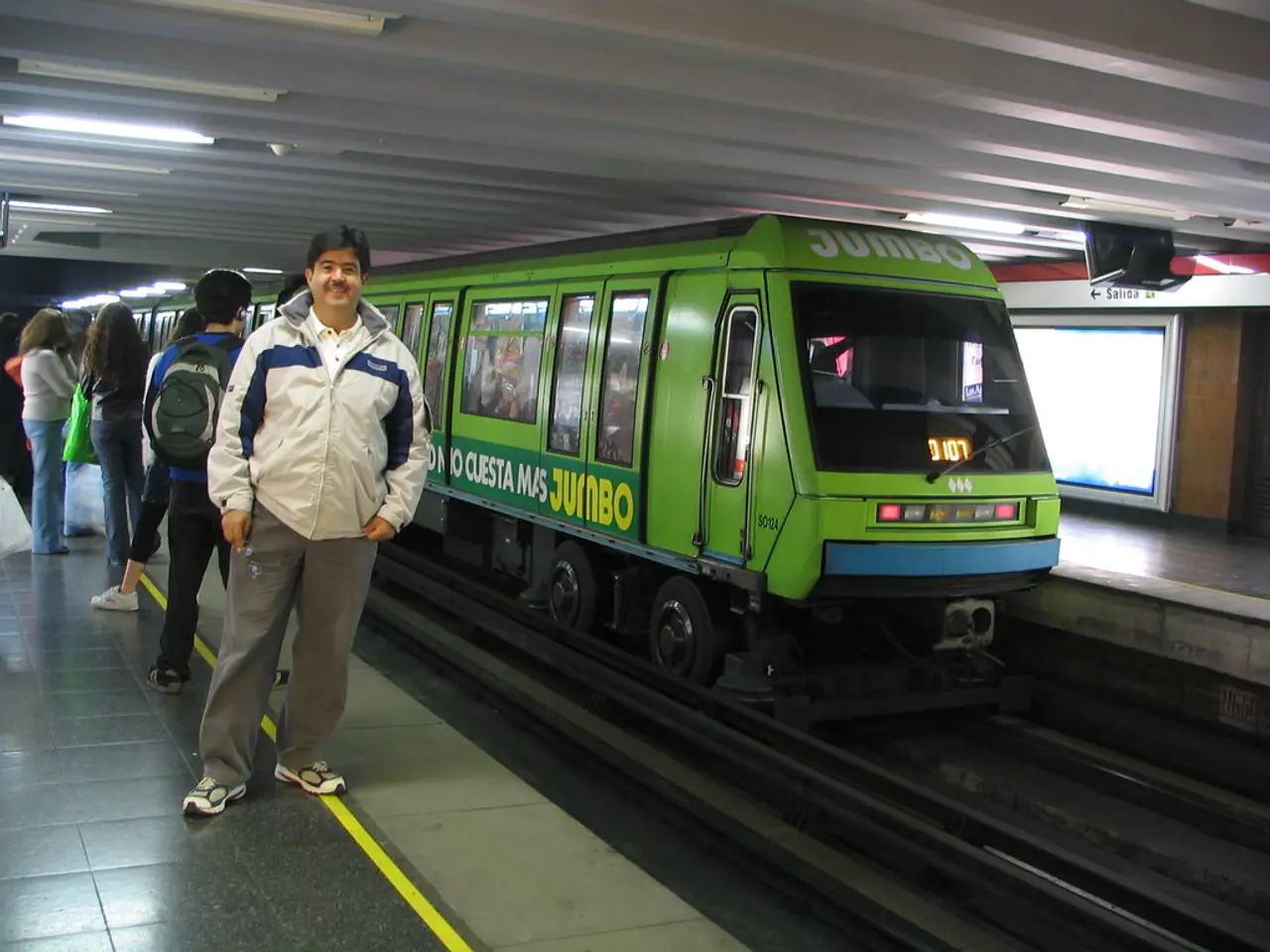Who will take over the position previously held by Richard Lutz at Deutsche Bahn? - Railways' successor to Richard Lutz in Germany
Deutsche Bahn Seeks New CEO Amidst Operational Challenges
Richard Lutz, the current CEO of Deutsche Bahn, is stepping down from his position, prompting a search for his successor. This change comes at a critical time for the German national railway, which is grappling with severe operational issues and a €1.8 billion loss in 2024.
The race to lead Deutsche Bahn has attracted five main candidates, each bringing unique qualifications and experiences to the table.
Anna-Theresa Korbutt, the CEO of the Hamburg Transport Association (HVV), is proposed by the passenger association Pro Bahn. Korbutt is known for her operational expertise in public transport and her outspoken stance on funding issues like the Germany ticket. She is perceived as a fresh external candidate capable of driving innovation and organisational change. However, her lack of direct experience managing a national railway of Deutsche Bahn's scale may pose a challenge, and she may face resistance as an outsider within DB’s entrenched culture.
Michael Peter, CEO of Siemens Mobility, brings strong technological and modernisation acumen critical for DB’s digitisation and sustainability goals. His industrial and operational expertise aligns with DB's modernisation needs. Yet, his lack of direct experience in running a public railway company and dealing with the complex political and regulatory environment DB faces could be a hurdle.
Evelyn Palla, head of Deutsche Bahn’s regional transport division, is an internal candidate with deep knowledge of DB’s operations, infrastructure challenges, and organisational culture. Her established relationships with unions and government stakeholders could facilitate smoother negotiations and continuity. However, she may represent "business as usual," which the German government and public are eager to change given the recent leadership shake-up and persistent dissatisfaction.
Andreas Mattha, head of Austrian Federal Railways (ÖBB), declined the offer to lead Deutsche Bahn but was considered due to his track record of successful railway management.
Peter Fuglistaler, former head of the Swiss Federal Office of Transport, also declined the role but was considered due to his extensive public transport regulatory experience in Switzerland.
The new CEO must demonstrate operational expertise, political savvy, modernisation vision, and crisis management skills to turn around public trust and performance. The leadership contest reflects a tension between fresh external perspectives and experienced insiders or railway leaders. The government and stakeholders seek a candidate who can negotiate DB’s complex political landscape, overhaul entrenched structures, and deliver fast improvements in service and infrastructure reliability.
For further information about Capital, the publication that brought you this article, visit www.stern.de/capital. Additional content related to Capital can be accessed with a stern subscription.
This article was written by Monika Dunkel and Nele Spandick and published by Capital, a partner brand of stern.
- The upcoming CEO of Deutsche Bahn will likely require expertise in business, politics, and finance to navigate the complex challenges of the national railway and deliver against key performance indicators.
- In the race for Deutsche Bahn's top position, candidates like Anna-Theresa Korbutt, with her background in vocational training through her role at the Hamburg Transport Association, may offer innovative ideas for organizational change and modernization despite facing potential resistance.




